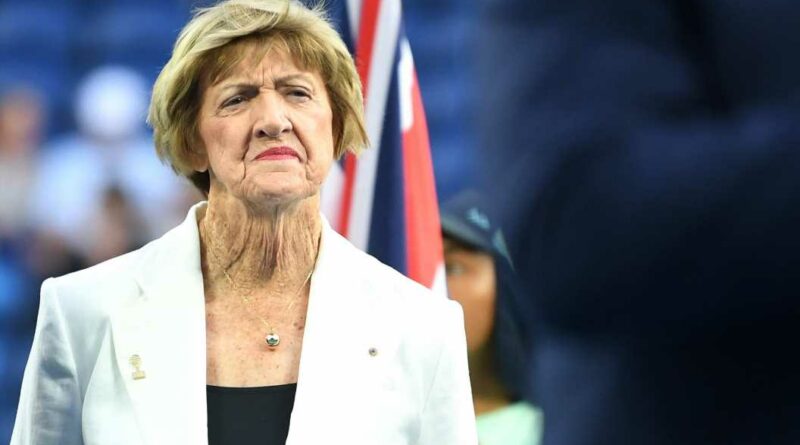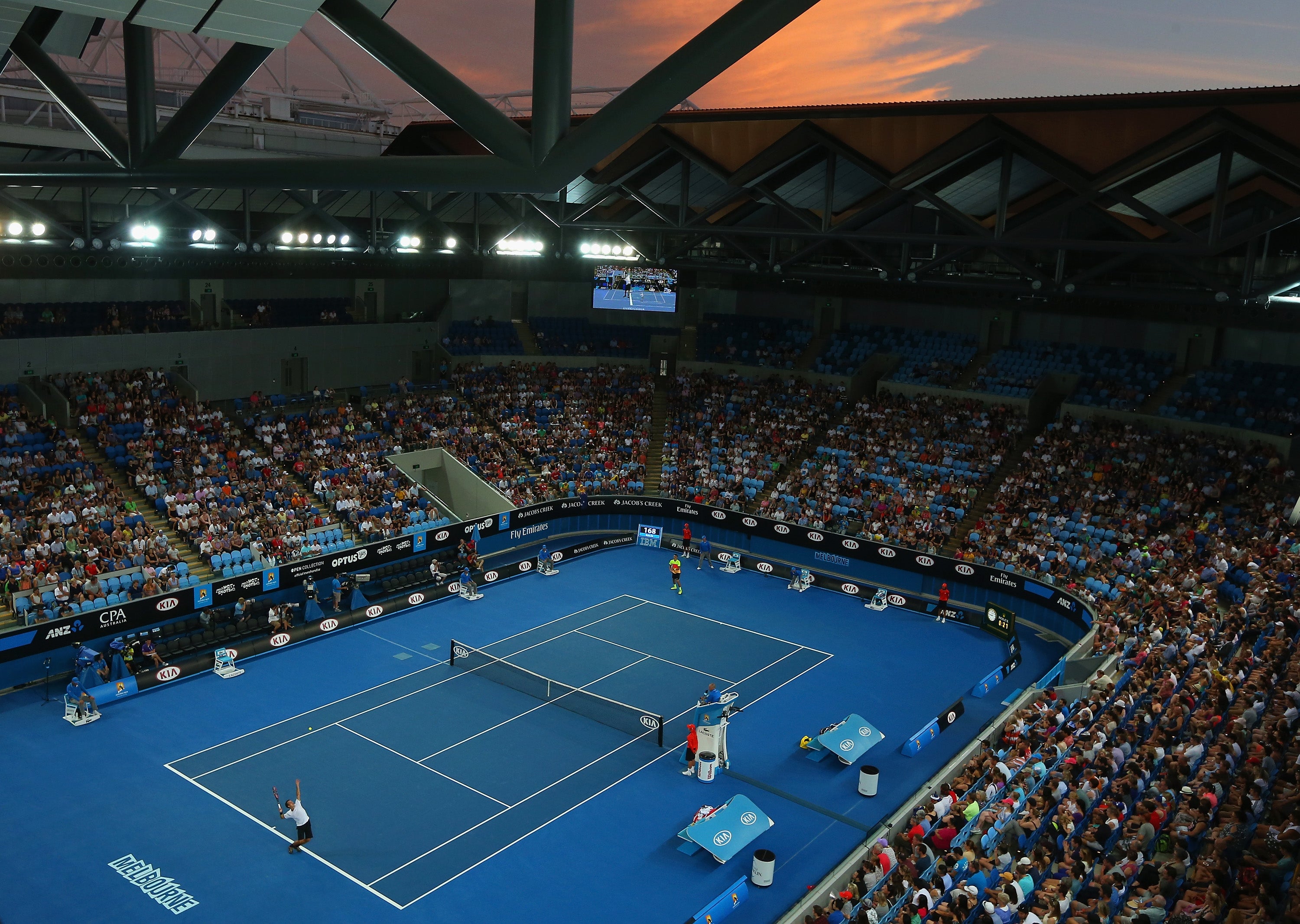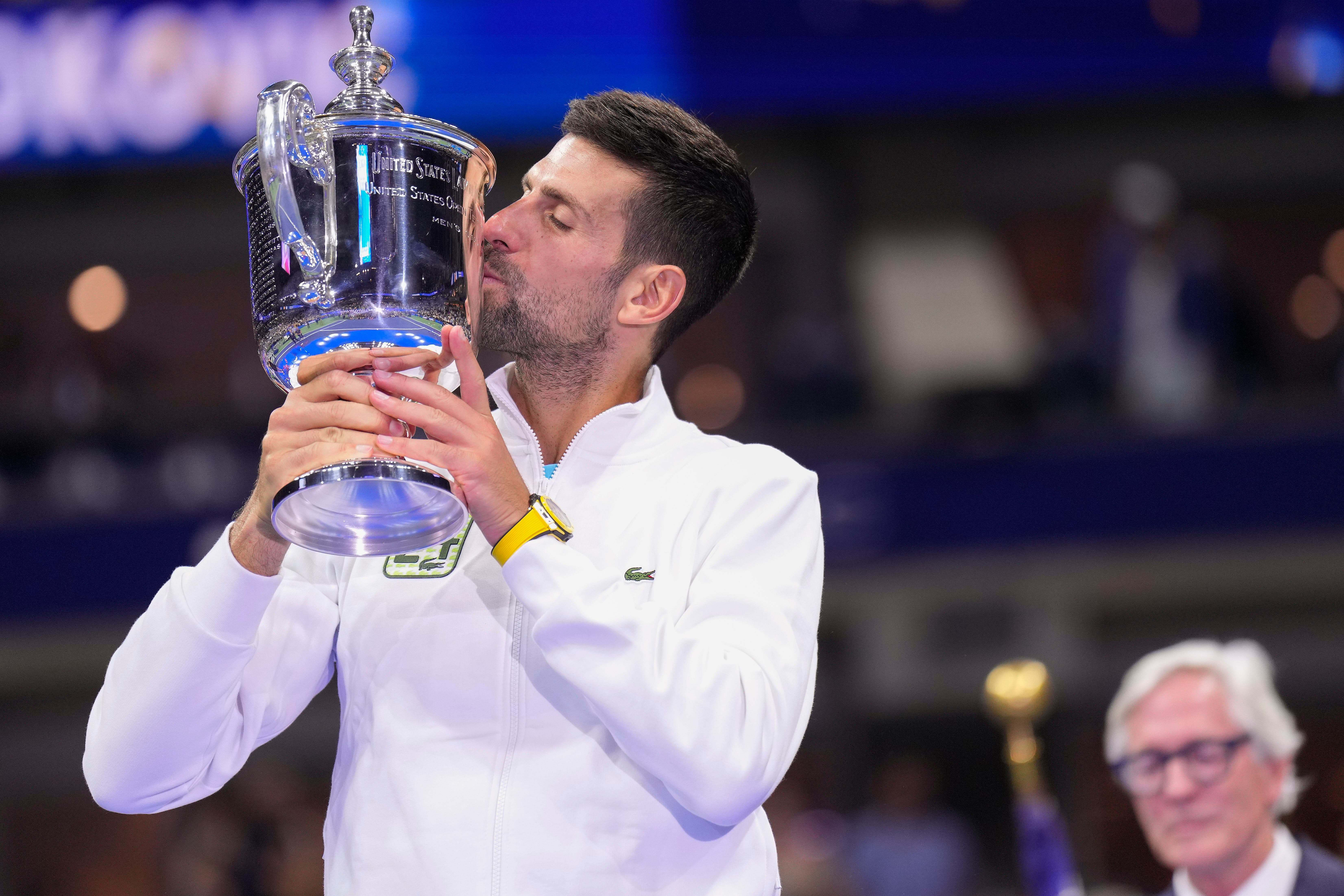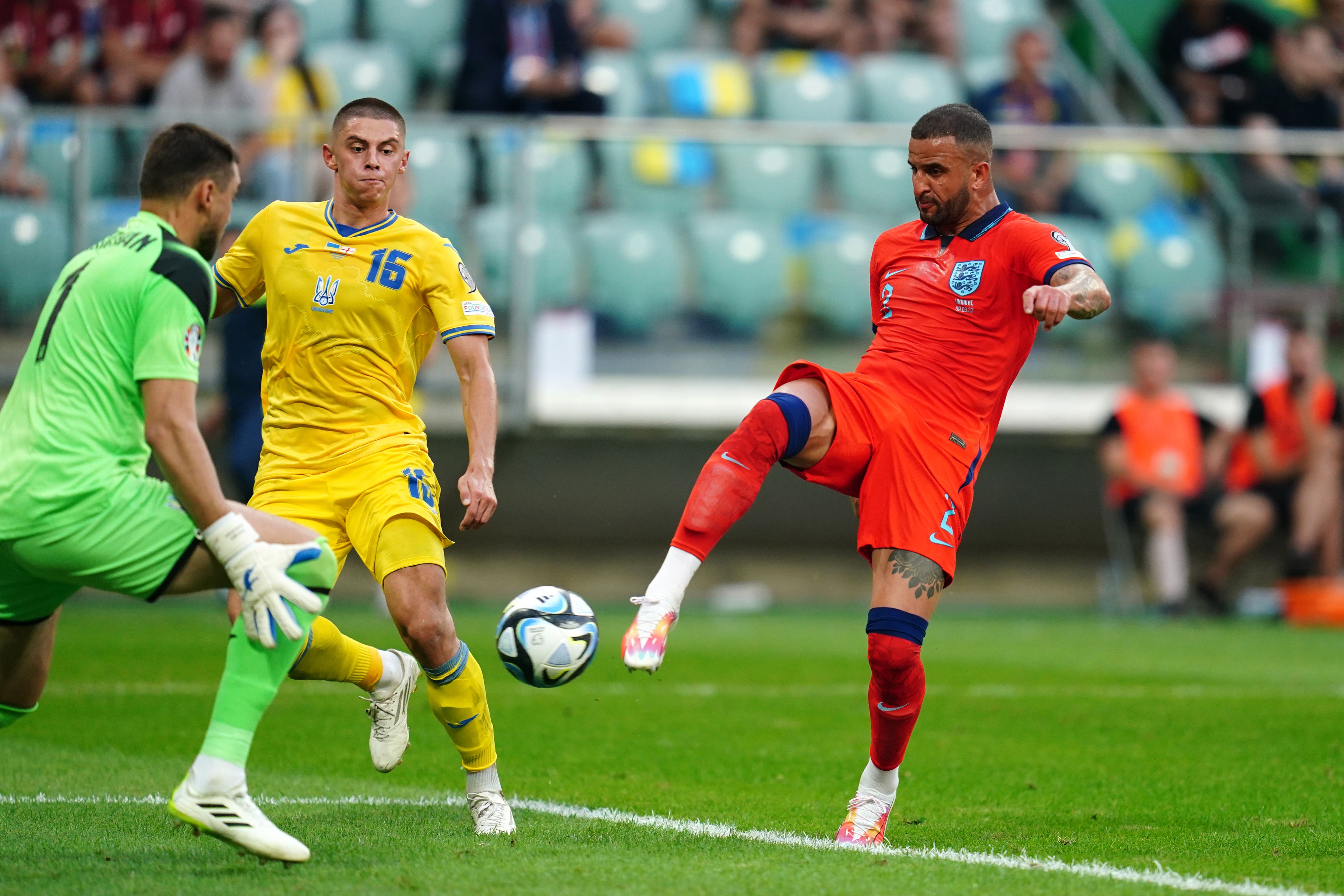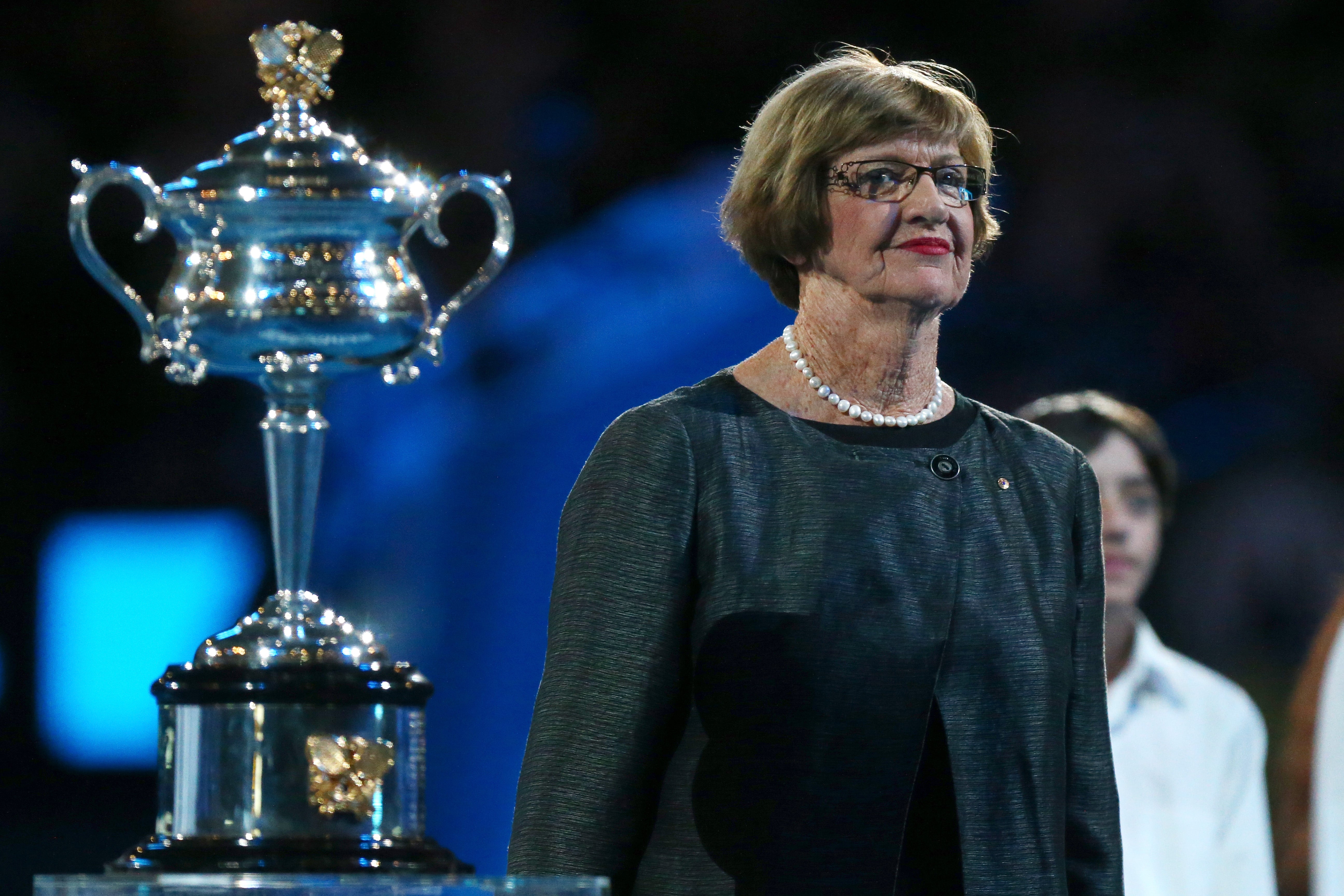It shouldn’t be left to Novak Djokovic to dim the light on Margaret Court’s legacy
Margaret Court looks on during a Tennis Hall of Fame ceremony at the 2020 Australian Open
Sign up to our free sport newsletter for all the latest news on everything from cycling to boxing
Sign up to our free sport email for all the latest news
Thanks for signing up to the
Sport email
Only a select group of people have a world-famous tennis court named after them. Novak Djokovic won Sunday’s US Open final playing on Arthur Ashe, named after the pioneering black star of the 1970s; it sits beside Louis Armstrong Stadium, a former music venue which salutes the New York jazz musician; in Paris, former player and influential governor Philippe Chatrier’s name adorns the main venue at Roland Garros.
Then there is the Margaret Court Arena, which stands next to the Rod Laver Arena at Melbourne Park. That Court still has her name up in lights is perplexing to me, but repeated calls to rename the stadium after someone who does not express their racist, homophobic and transphobic attitudes have so far fallen on deaf ears at Tennis Australia. It is not only that Court harbours deeply discriminatory views on a number of topics; it is that she actively seeks controversy and a reaction to her prehistoric beliefs.
And yet Court, who is now a Pentecostal minister in Perth, remains honoured in Melbourne and even received an invitation to attend this year’s tournament, which she declined. Tennis Australia “does not align” with her views and repeats the line that the stadium recognises only her sporting achievements and not her personal beliefs, which is a bit like naming Spanish FA headquarters the Luis Rubiales Convention Centre because he chaired a mean quarterly meeting.
A view of the Margaret Court Arena
Court likes to rail against cancel culture despite being living proof that it doesn’t exist, or at least doesn’t really work. Despite her protestations, removing Court’s name from a stadium would not edit her sporting achievements, just as tearing down a statue does not change history. Whose achievements we celebrate is a choice, and to be chosen is a privilege. It is not hard to find others more worthy: Billie Jean King has led calls for the arena to be renamed in honour of Evonne Goolagong, another great player and an Indigenous Australian icon.
Recommended
That appears unlikely any time soon, so instead it is up to Djokovic to diminish her fame just a touch. On Sunday he joined Court on 24 singles titles. He will likely win another, and another, and throw a little more shade each time, eclipsing her record tally which has stood untouched for nearly half a century.
Djokovic is not a unanimously popular king of tennis. It hasn’t helped him that his reference points have always been Roger Federer and Rafael Nadal, two of the most cherished athletes of our time. Federer, always poised and immaculate, like a glorious shire horse in a cashmere cardigan; Nadal with those puppy eyes and giant arms, all polite and humble and embarrassed to be destroying rivals’ dreams.
In that light Djokovic has sometimes seemed a little calculated and robotic, with a steeliness that was often hard to warm to. He was regularly pitted against these two icons of the game, and the crowd would cheer the other guy. Or he’d be pitted against someone nowhere near as good as him, and so the crowd would cheer the other guy. He sometimes felt jilted on the world’s biggest stage.
Margaret Court presents the women’s Australian Open trophy in 2013
Then came the 2022 Australian Open, and his views on vaccines hurt his reputation: at best an oddball, a kook, at worst someone a little sinister. But Djokovic was exploited and used as a political pawn when authorities detained and interrogated him over what was a paperwork dispute, at a time of heightened tensions in Australia and around the world. He might have considered that he picked the wrong fight when Nigel Farage joined his cause, but by then so much damage had been done.
So perhaps it is timely that as his career enters its winter, his point of reference is finally shifting and opinions are softening just a little. Federer has retired, Nadal is retiring. He has eclipsed their tallies and now there is only one left to surpass.
Djokovic is certainly a better ambassador for the sport than Court: his speech following defeat by Carlos Alcaraz in the Wimbledon final was full of grace and appreciation for his conqueror when he must have been hurting. Tennis Australia could do worse than rename the Margaret Court Arena after Djokovic, a 10-time winner in Melbourne. Certainly it shouldn’t be left to Djokovic to dim her spotlight, but he will be doing tennis a service when he finally wins slam No 25.
Source: Read Full Article
